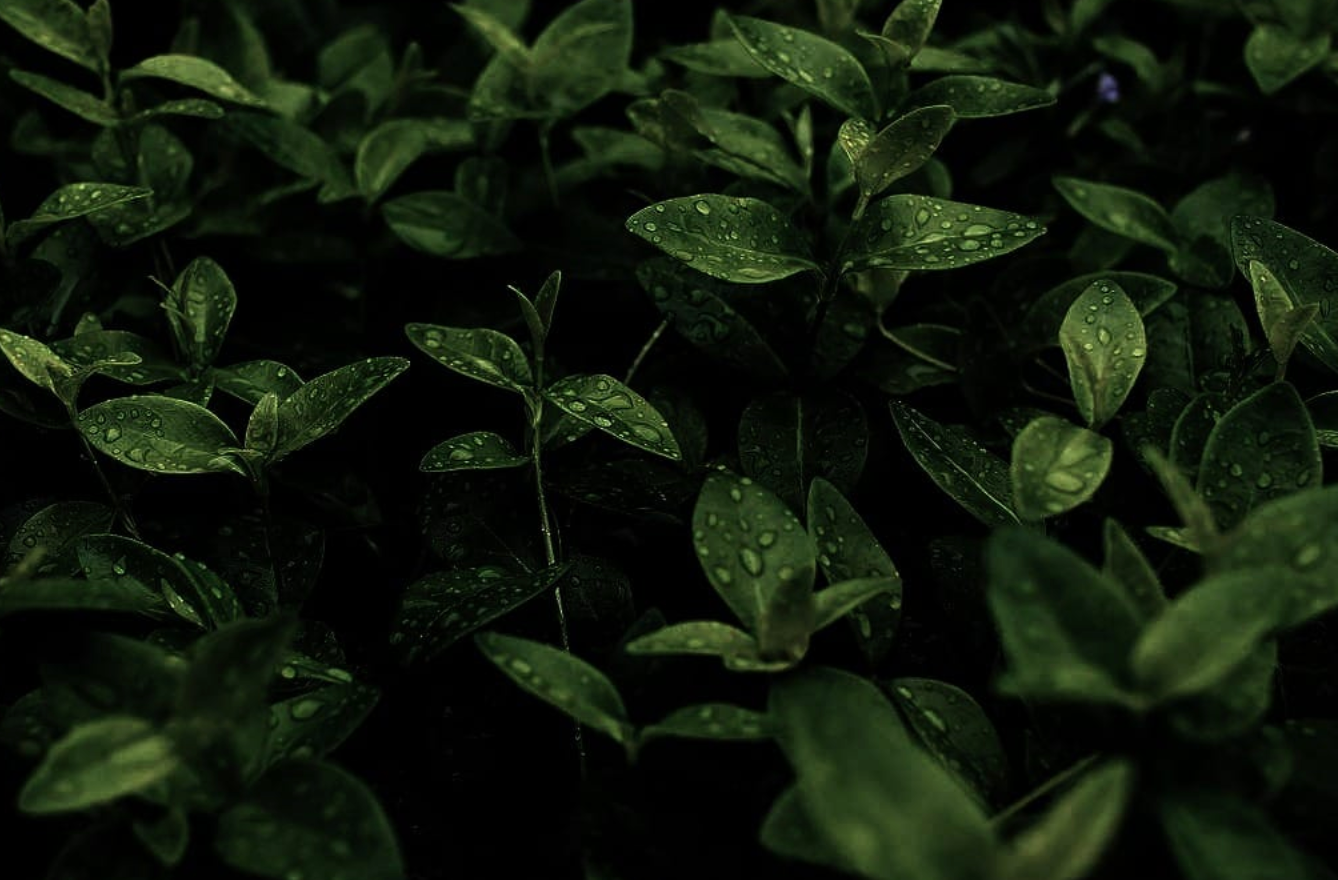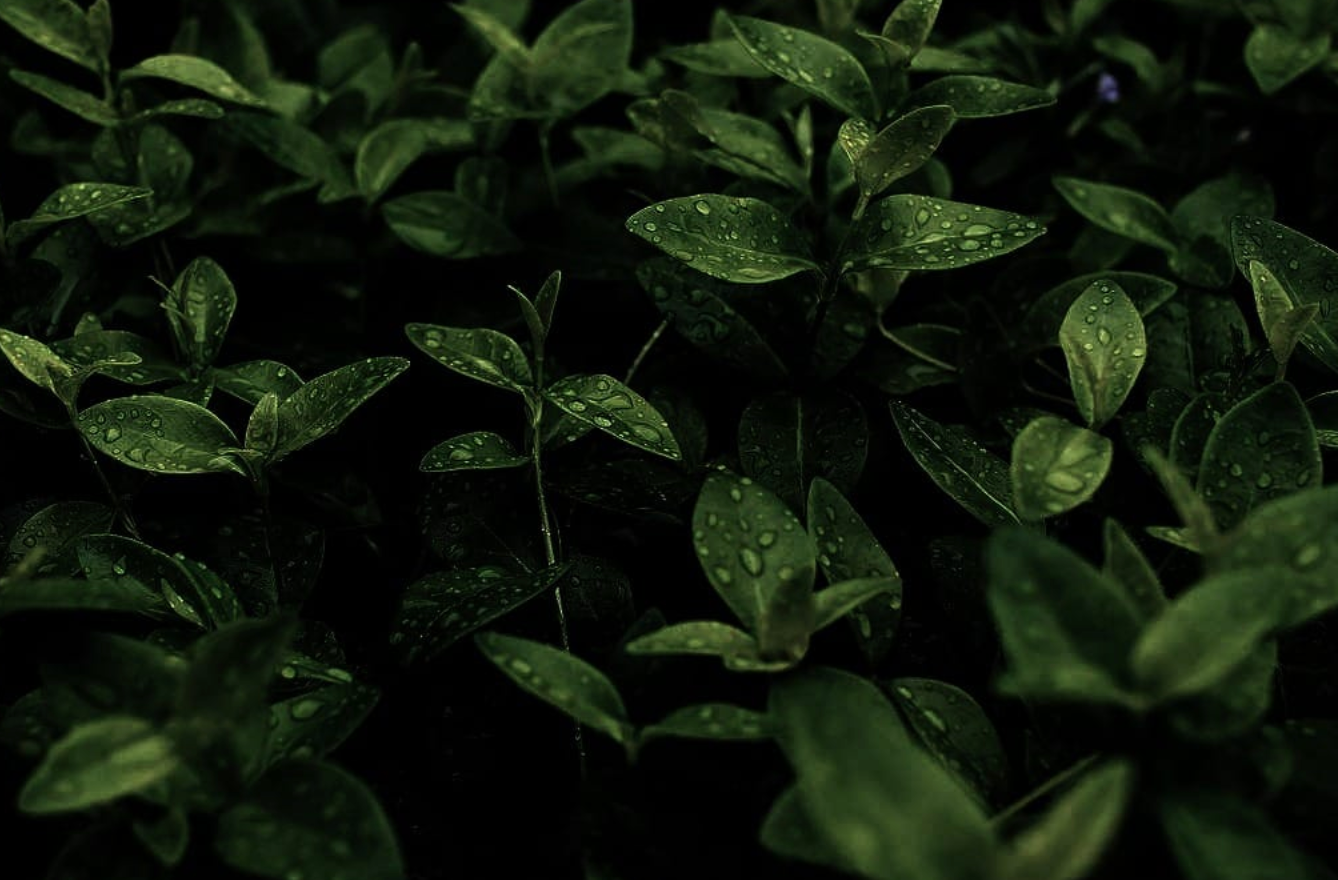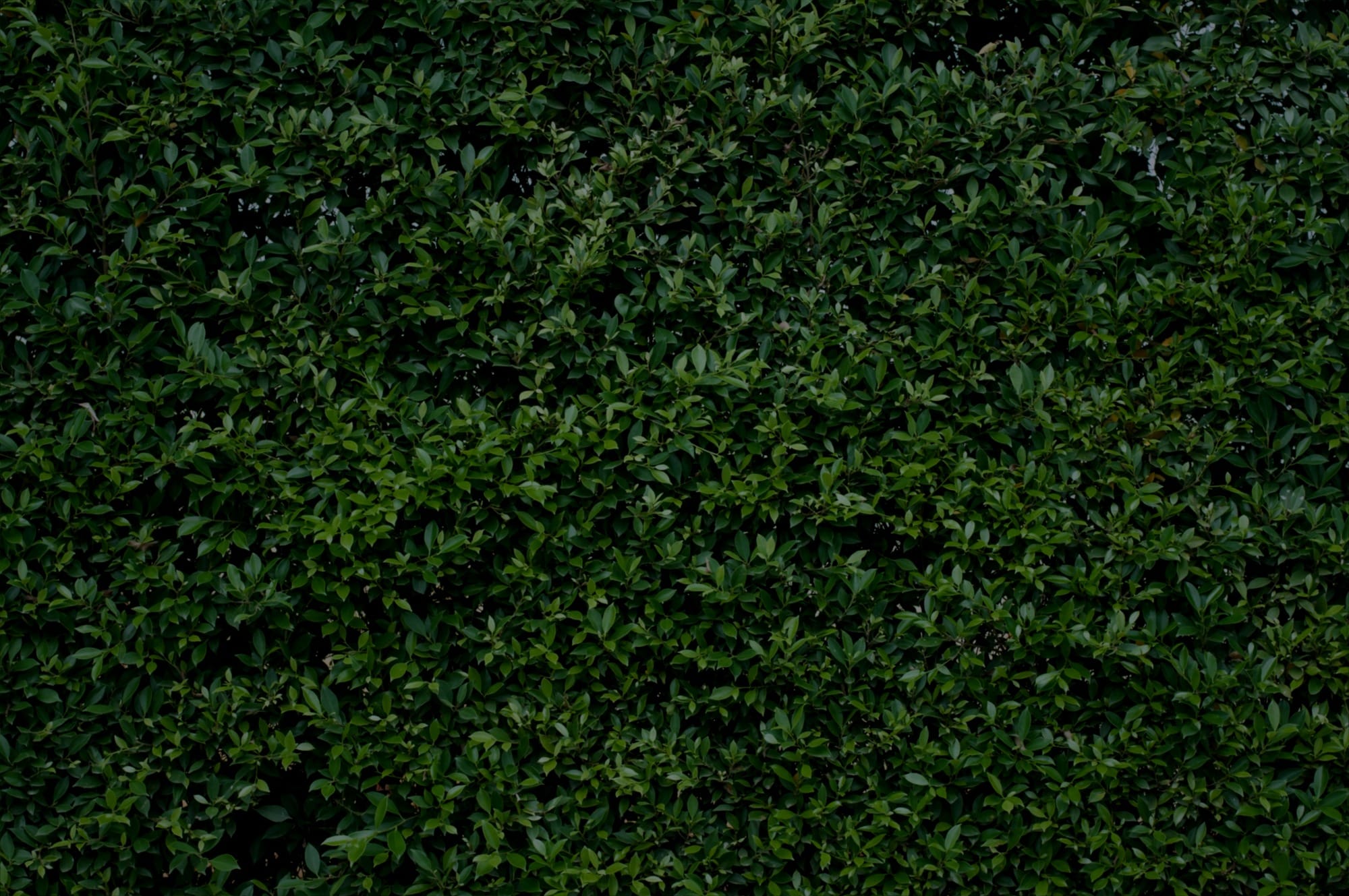When We Look to See
Everything Opens Up
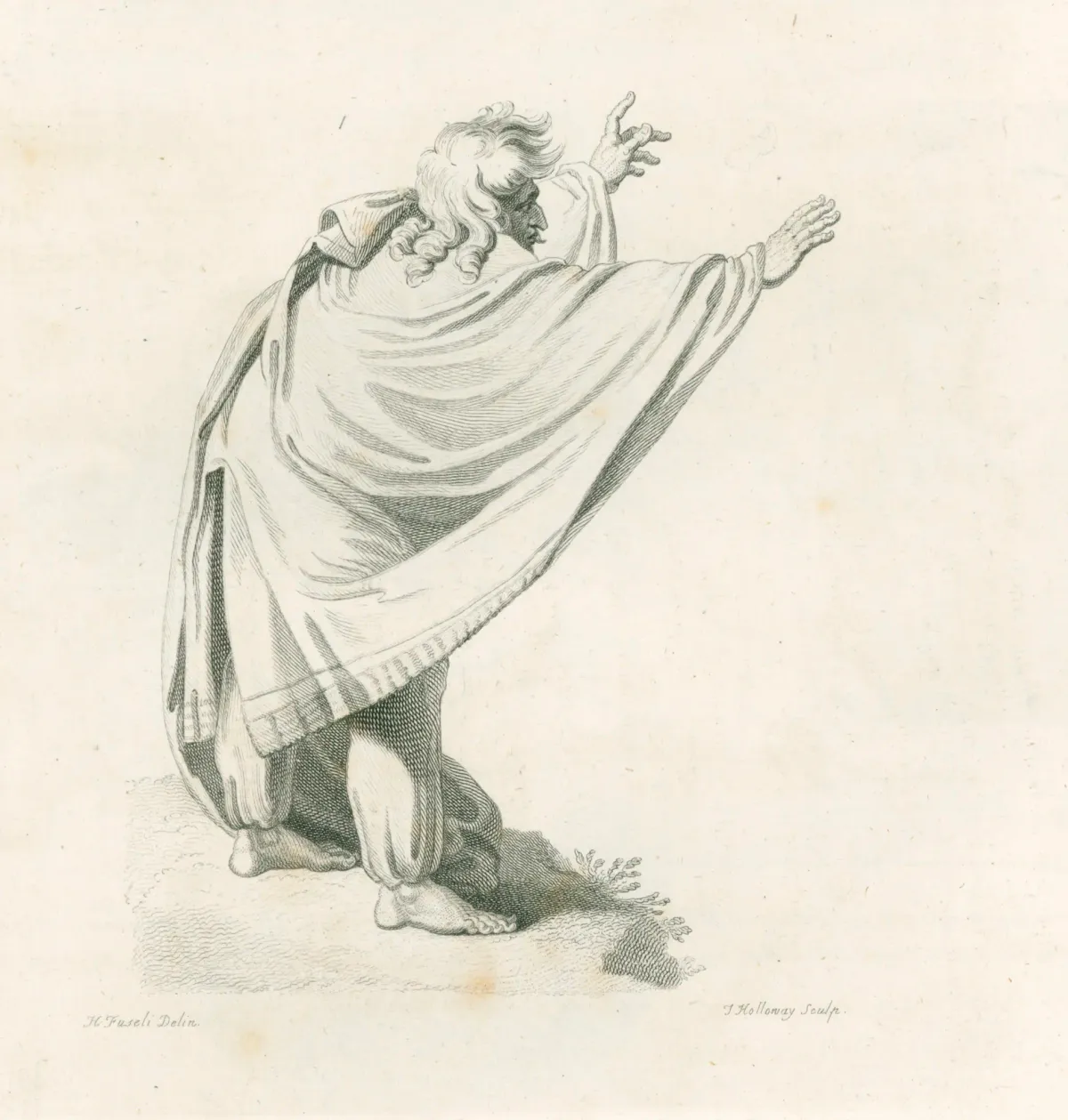
This is Life as a Sacred Text 🌱, an everybody-celebrating, justice-centered voyage into ancient stories that can illuminate our own lives. It‘s run on a nonprofit, so it’s 100% NAZI FREE. More about the project here, and to subscribe, go here:
First of all, happy almost Juneteenth!
A few resources from my corner of the world:
- A webinar tomorrow (June 18th) from T'ruah with Rabbi Walter Isaac, Ph.D. on the role that Black Jews have played in the development of modern democracy in the US, France, Haiti, and beyond,
- And another one on the 27th from the RAC featuring Yolanda Savage-Narva, Rabbi Isaama Goldstein-Stoll, Michael Davis, Dr. Everlyn Hunter, Gamal Palmer and Nate Looney talking about the intersections of Juneteenth and Pride.
- Why Juneteenth Should Be a Jewish Holiday, by Tema Smith
- A bunch of resources from B'chol Lashon
- The Juneteenth Seder created by Jews for Racial and Economic Justice (JFREJ) in 2018 (additional notes here.)
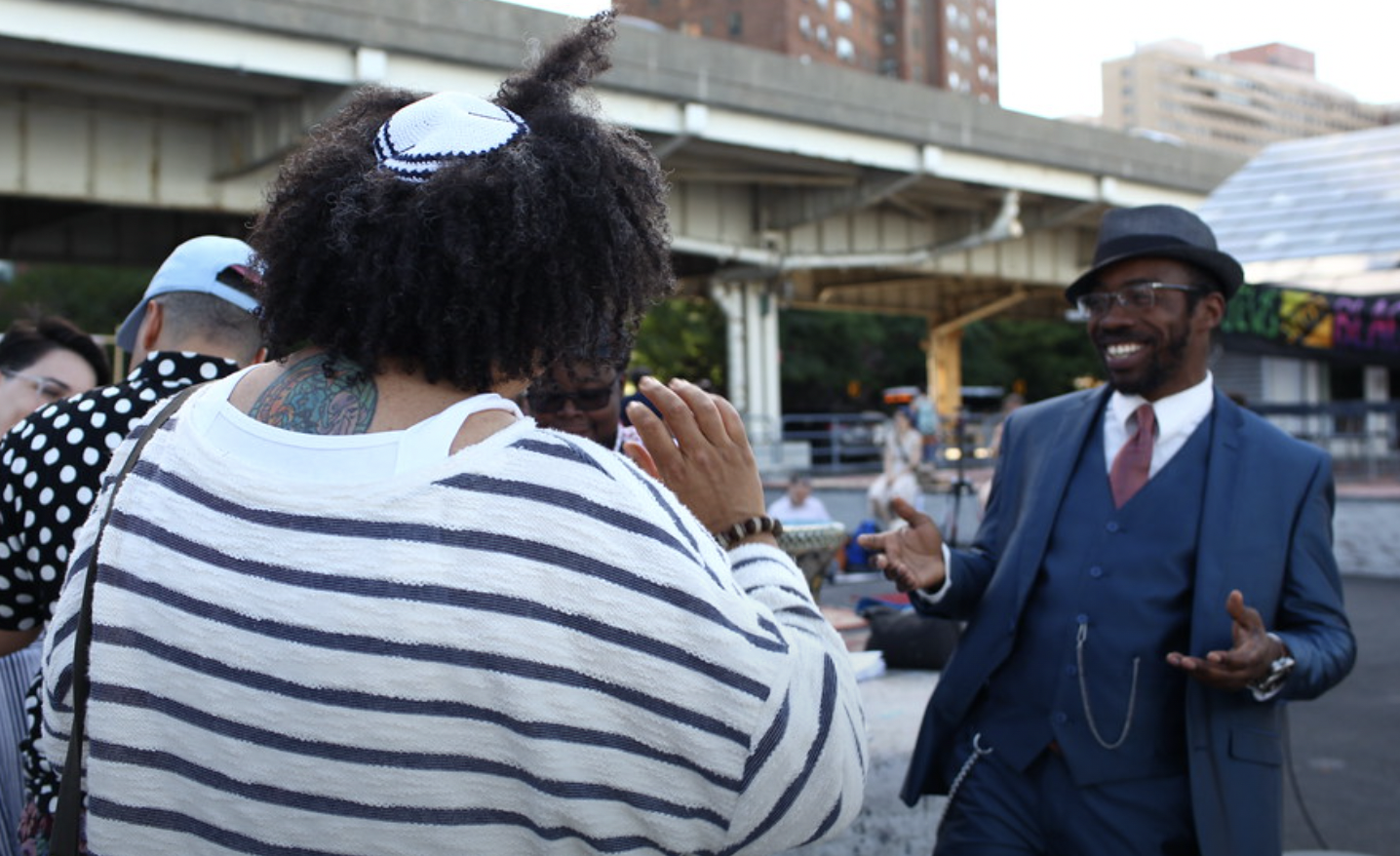
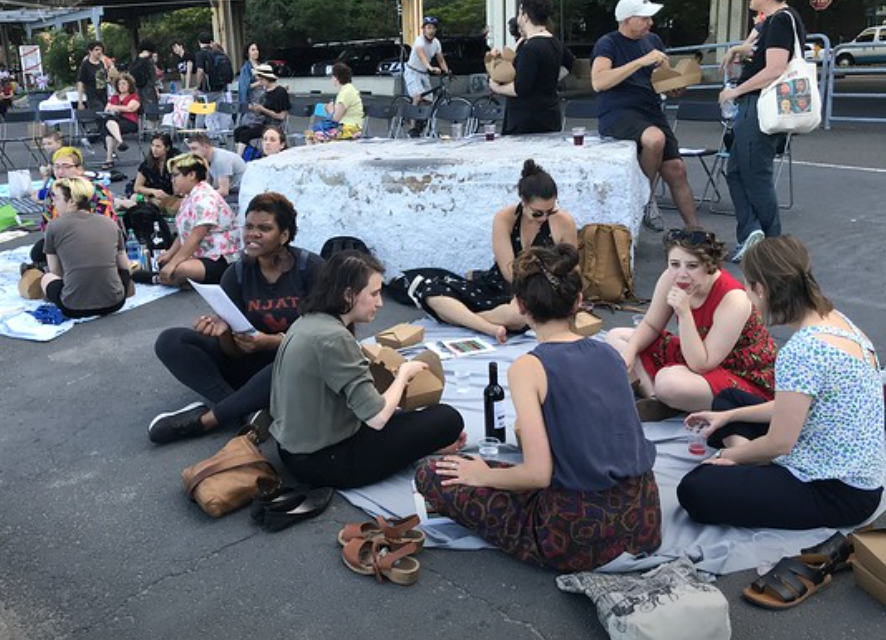
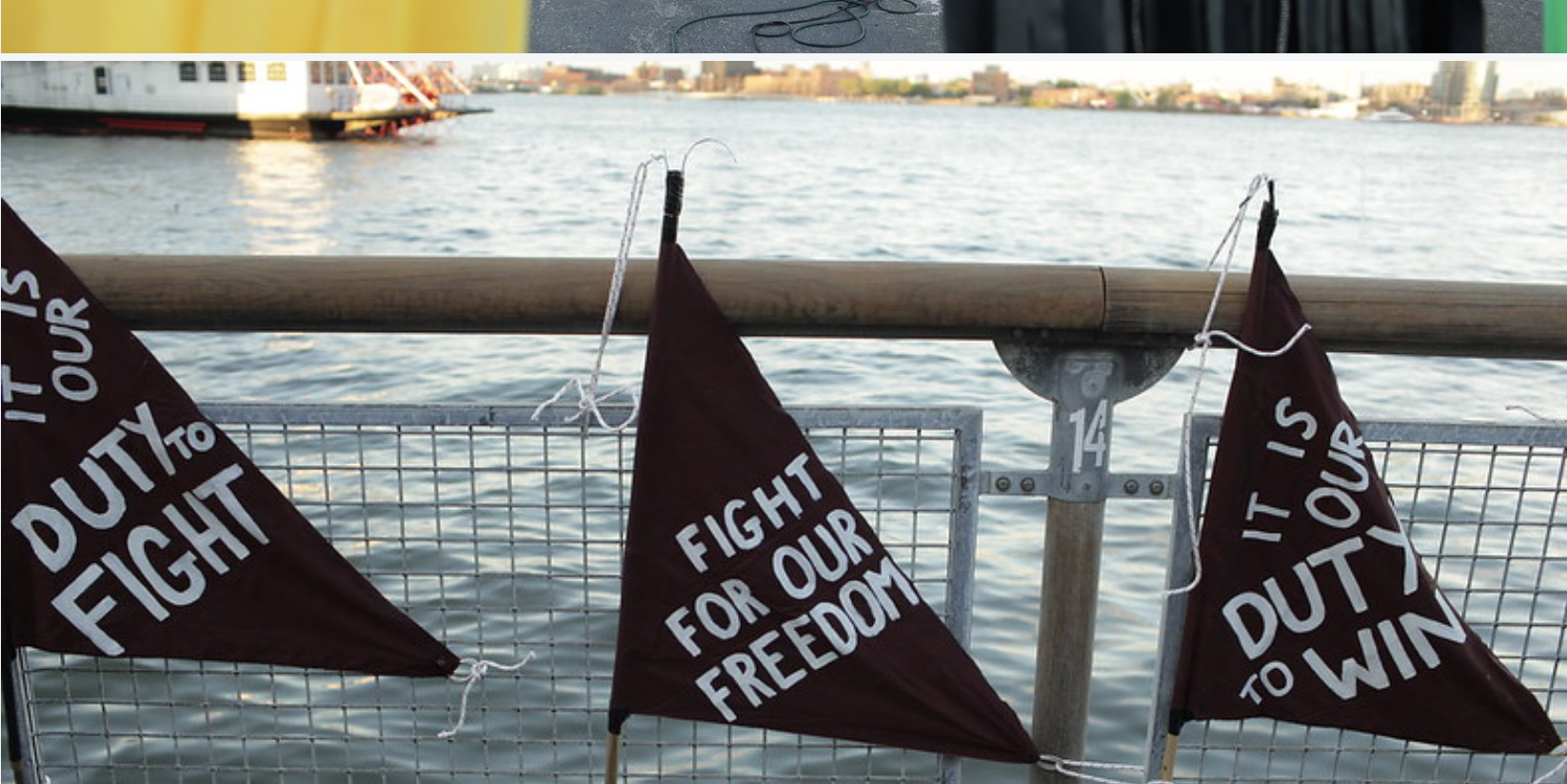

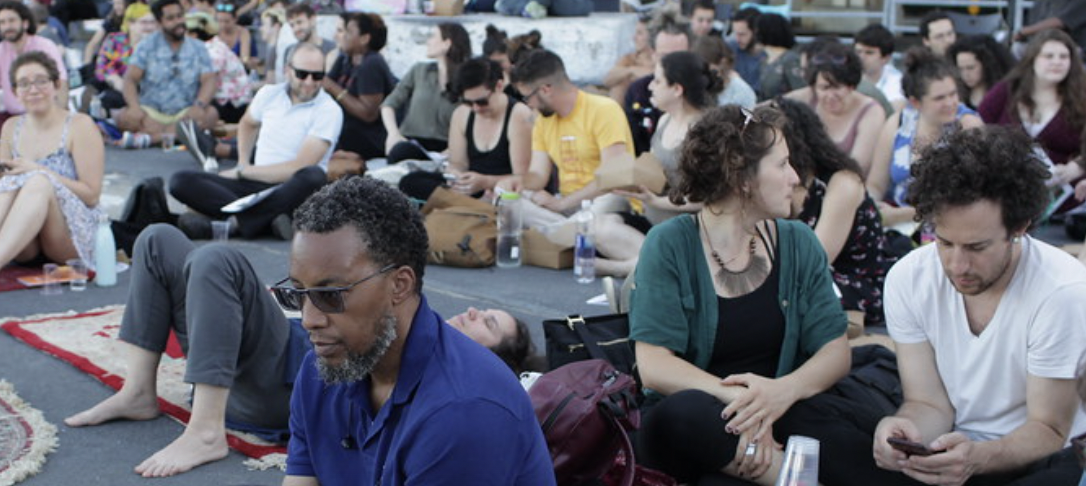
Scenes from the JFREJ Juneteenth Seder in 2018. I spy with my little eye Rabbi Koach Baruch Frazier holding that seder plate (listen to his gorgeous music) and the ever-impeccably dressed Ma Nishtana / Rabbi Shais Rishon in his 3 piece suit and hat (read his searing / hilarious / searing books, omg)
We continue on with our tale in Numbers.
The Israelites are voyaging through the desert. First, they try to get through Amorite territory– they send a message to the king asking for permission to cross through, noting that they'll be polite about it, they won't get up in anybody's fields, vineyards or wells, they'll just stay on the main road like mensches. But the Amorite king decided he'd prefer to kill the Israelites than let them pass.
⚡ Interlude: Battle scene. ⚡
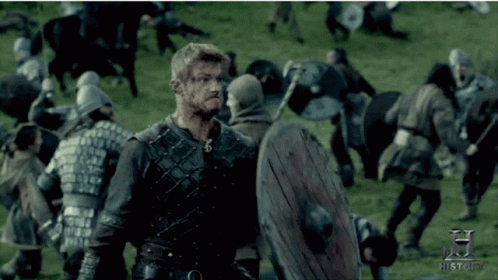
Interlude: Israelites winning, and deciding to chill in the Amorite territory for a bit.
Whoops, that didn't go how the Amorites meant it to!
(Remember: The Israelites had just wanted to stroll on through. They fought back when attacked.)
So with that as backstory–
we arrive at Numbers 22.
I've been defaulting to the Jewish Publication Society (JPS) translation of Torah most of the time around here, modifying it (not infrequently) when I think different language choices would be more apt. Today, though, I'll use the translation by Prof. Everett Fox, which goes for a literalism intended to give you more of the feel of the Hebrew than some translations that try to flow more like English. Let me know your thoughts!
And the Children of Israel marched on and encamped in the Plains of Moav,
across from Jordan-Jericho. Balak son of Tzippor saw all that Israel had done to the Amorites, and Moav was in exceeding fear before the people, since they were so many; they felt dread before the Children of Israel. Moav said to the elders of Midyan: Look now, this assembly will lick up everything around us like an ox licks up the green-things of the field! ...He sent messengers to Bil’am son of Be’or, to Petor, which is beside the River [in] the land of the sons of his kinspeople, to call him, saying: Here, a people has come up out of Egypt; here, it covers the seeing of the land, and it has settled hard upon me! So-now, pray go, curse this people for me, for it is too mighty [in number] for me! Perhaps I will prevail: we will strike it, so that I drive it from the land. For I know that whomever you bless is blessed, whomever you curse is cursed! (Numbers 22:1-6)
The Israelites march on, minding their own damn business.
BUT they are hit with dehumanizing language and incendiary propaganda: "They will lick us clean," they "cover the visibility of the land," in order to justify what happens next.
Balak wanted to bring harm to an entire people because – well, the language in this second line is actually fascinating.
The full line is,
Moav was in exceeding fear before the people, since they were so many; they felt dread before the Children of Israel.
That word for "in exceeding fear" could also mean, "stirred up strife with," I'll note. And the word that's getting translated as "felt dread" could be "loathed," "abhorred."
It could be understood, not unreasonably, as:
"Moab hated them so Moab stirred up strife with them."
Now, is Moab "the people," the Moabites, or a euphemism for the king? It really could be either, and we could read it either way. (OK, according to a scholarly approach to these things, it's likely that verses 1, 2 and 3 all have different authors (1) BUT either way- )
We've seen this story before.
Do the people dehumanize another group before the leader goes after them? Or does the leader initiate and bring the people along? We've seen both in history. We know that both happen.
In any case, Balak goes to the seer, the prophet Balaam, to demand that he curse the Israelites.
Balak doesn't care what happens to them, he just wants them cursed, gone, no mater how they suffer.
We've seen this story before.
We know what Balak is asking Balaam to do.
Balaam the seer spends the night before going off on his cursing journey, at which point God shows up, asks what he's up to these days. Balaam catches God up on his latest paid gig and God advises him that throwing curses in Israel's direction probably wouldn't be the wisest idea, "for they are blessed.” (Numbers 22:12)
Can't a seer just earn a living anymore?? So after a series of events– yes, Balaam's donkey talks back when Balaam can't tell that there's an angel nearby (2) — Balaam travels with King Balak and a bunch of the Moabite dignitaries to where the Israelites are camped.
In the morning Balak took Balaam up to Bamoth-baal. From there he could see a portion of the people. (Numbers 22:41).
He could see them.
He sees the Israelites camped in their tents. He probably sees families together, children and parents, maybe children playing, maybe groups of friends, maybe couples in love. He sees a people, vulnerable and frightened, yearning to breathe free.
He sees them.
And instead of cursing them, he blesses them.
His seeing and blessing are intertwined. When he opens his eyes and his heart to behold the Israelites' beautiful, holy selves, created in the image of the divine– as he was, as everyone is– he can't go through with the curse. He can't harm them once he recognizes their inherent worth.
Unlike Balak, who dehumanized them from afar, he – sees them. Instead of making choices that would hurt them, he is moved to offer something that would bring them more wholeness and safety.
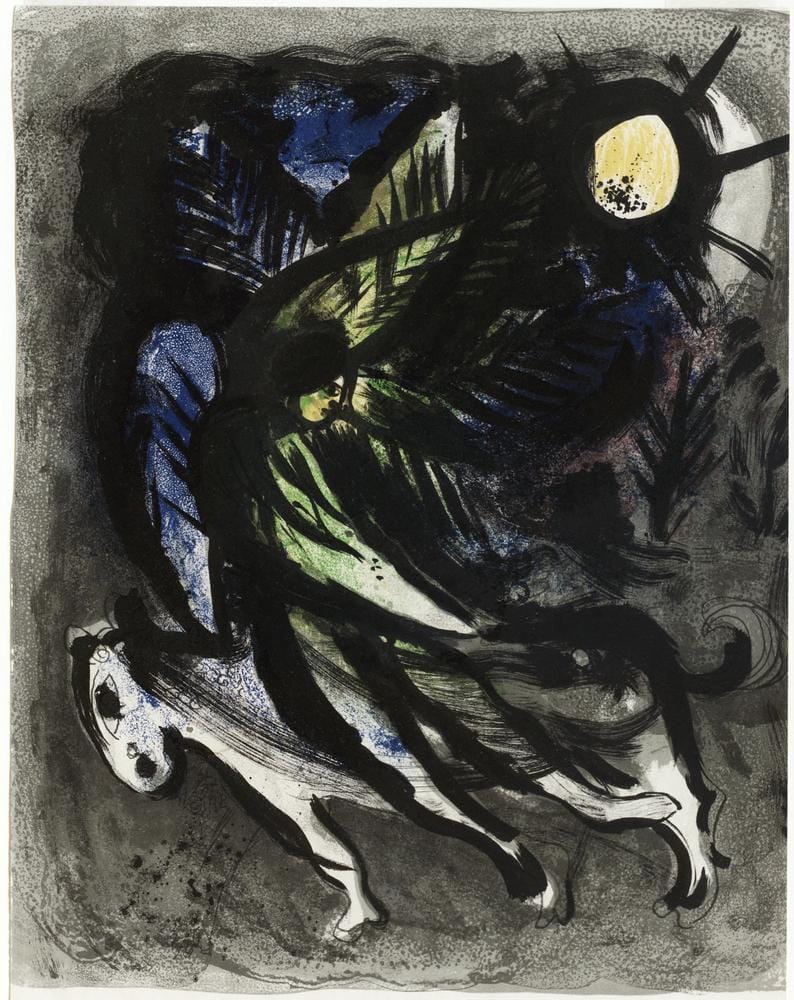
(This of course causes significant tension with his vindictive patron, who continues to demand sinister action. We can certainly think about all the people of conscience in institutions today who are navigating similar situations– some as bravely as Balaam, some.... not.)
Balaam's blessing goes on for some time, and there's a moment in the middle of all this when he turns to face the wilderness, this limbo, this howling void between danger and safety:
"As Balaam looked up and saw Israel encamped....the spirit of God came upon him.... he said.... 'How good are your tents, O Jacob, Your dwellings, O Israel!'"
When we open our eyes to see the full humanity of others, we are able to see their goodness.
Their value. Their beauty. Their gifts. Their inherent worthiness, regardless of their productive output.
We experience their sacredness.
As such, we experience the spirit of the divine upon us.
We become able to bless them.
We become able to tap into the holy that is always a potential within or beyond ourselves and to offer it up to another, to the other– even to someone we might not know, might never have met.
It's possible.
And when we bless– when we give over of ourselves to others, when we offer something holy and true to another– we also expand our capacity to see them.
When we look to see, we find our capacity to bless.
As we bless, we become even more able to see.
We need to hone this skill now, more than ever.
Because the whole point is that the two horrific examples shared above are only able to exist in a world that dehumanizes generally, constantly.
That builds up the tolerance for statements like such as those to even exist.
We live in a dehumanizing culture.
We are all told that our value lies in what we make or do or provide or offer and in how much of it– not in who we are, inherently. We are given so much of what passes for connection in soundbites, in 280 characters or 30-second videos, more likely quickly over Zoom than leisurely over coffee these days. To say nothing of the ways in which power, social hierarchy, and systemic oppression magnify and exacerbates everything: Dehumanization continues to be a deadly component of white supremacy; has been a mechanism for the lethal oppression of trans people globally; is a routine part of our culture's attitude and policy around disability, especially but not only in its handling of COVID; manifests in myriad issues around women, especially Black, Indigenous and other Women of Color. It's a core component of our carceral systems, including what is absolutely a labor system of slavery; it impacts our policy around those who are unhoused or struggling with addiction; it is, of course, used as a core component of our atrocious im/migration policies and to justify the bombing of innocents worldwide, and manifests in so many more ways.
The normalization of dehumanization is what enables its grossest violations.
We have become so used to the water heating up that it's become harder to see that it's boiling, that it's been boiling, that curses have already been issued: more curses on more kinds of people than we can even comprehend, really.
We have a lot of work to do.
This fight is going to be long.
We've seen this story before.
We must show up and fight for a more whole world now, today. In every single way: On the policy level. On the grassroots level. In the streets and behind the scenes. From every angle and with every capacity. Now. There isn't time for skepticism or despair. People need us.
And in this story of Baalam's learning to actually see the Israelites' humanity, to save them with blessing rather than damn their fate, something else is revealed:
The sacred language of a non-Israelite is, here, given literal or literary heft and weight, substance.
We are to understand that Baalam's curse could have actually harmed the Israelites. Otherwise, [the character of] God wouldn't have gotten involved.
And, similarly, that Moabite blessing meant something, too.
I mean, we sing part of it in the daily morning prayer service!
מַה־טֹּבוּ אֹהָלֶיךָ יַעֲקֹב מִשְׁכְּנֹתֶיךָ יִשְׂרָאֵל׃
How good are your tents, Jacob/ Your dwellings, Israel!
“When entering the synagogue in the morning, is there anyone who does not say ‘Mah Tovu’ ('How good are your tents") and a few other verses?” (Responsa Maharil, 150:9, Rabbi Yaakov ben Moshe Levi Moelin, 1365-1427, Mainz)
FOLiST (Friends of Life is a Sacred Text) Rabbi Annie Lewis Rabbi Yosef Goldman wrote this lovely tune for Ma Tovu/"How Good Are Your Tents." (There are a lot of other tunes for it, but I like this one, maybe you will, too.) You can get R.YG's most recent album here.
Some say it's special because it's a curse that was turned into a blessing, but the point remains: It's a blessing from a Moabite. And we treasure it.
So while Balaam is going on this journey to seeing and understanding the Israelites in their full humanity– well, the Israelites are able to receive that blessing exactly on its own terms, exactly as it is.
Especially given how badly things go in the following chapter–there's a lot of idolatry, lotta stabbing and impaling– this is really important.
Here, Balaam and the Israelites are each willing and able to honor the sacredness of the other. To value one another. It sounds so trite, but in an age of white supremacist backlash, rising transphobia, Christian theocratic courts who have a stranglehold on our democracy, and horrors globally– you know that it isn't.
None of the ideas that Balaam is showing us here– none of them– are things that we can take for granted.
His willingness to look and see.
The Israelites' ability to honor and accept his gift of blessing.
These exchanges are not to be taken for granted.
Who haven't you seen in their full humanity, recently?
Who have you been told to curse?
Have you been told this... because it's in the best interests of – your people? Your country? Your ideas about what might keep you or others safe? Your ideas about what liberation are?
What would it take for you to pause and see that group of people as people?
How might you turn a curse into a blessing?
What might be the best way forward for everyone?
And Balaam looked. Balaam turned to see. He opened his eyes and his heart, accessed empathy, caring, concern in order to protect oppressed human beings.
We must do all of these things. The hour is upon us. We must be brave in our work for justice and liberation.
We must use all of our privilege and access.
And in order to do anything, we must first must open our eyes and our hearts.
As we fight to create a world that is equitable and just, we must also create a world of caring and connection, of empathy and love.
We must never forget to look, and to see.
We've seen the story of oppression before, but we've also seen the story of hope before.
We've seen this story before. And we know that we can work towards a world that is more full of justice, and caring, and empathy, and freedom, and love than the one that we are in.
May our gaze never waver from this task.
🌱🌱🌱🌱🌱🌱🌱🌱🌱🌱🌱🌱🌱🌱🌱🌱🌱🌱🌱🌱🌱🌱🌱🌱🌱
Like this? Get more of it in your inbox every week. 🌱
For free every Monday—sign up at the ‘Subscribe now’ button just below.
And if you become a paid subscriber, that's how you can get tools for deeper transformation, a community for doing the work, and support the labor that makes these Monday essays happen.
A note on the subscription model:
I want my work to be as accessible to as many people as possible, in as many ways as possible. That's why the Monday essays are free, and why we donate subscriptions to anyone for whom paying is a barrier to the House of Study posts.
I also believe people should be paid fairly for their work. Needless to say, these two values sometimes seem to be in conflict, but I do what I can to find a fair balance. I offer many resources for free, and charge for others. When you donate generously or pay at the top of our scale, that helps support the work I do, provides access for those who have fewer resources, pays for the infrastructure and the technical and practical support that it takes to do this, and helps us keep the work sustainable.
And as always, if you want in to the Thursday space but paying isn't for you now, just email support@lifeisasacredtext.com and we'll hook you up.
And if you’d like to underwrite one of these donated subscriptions, you can do so by signing up at one of the higher subscription points.
And if it resonated with you, please share this post.
Sending a big pile of blessings and goodness your way. 💕
FOOTNOTES
(1) TL;DR: This is absolutely a Frankentext. From different authors/mythic sources, sewn or built together. There may be disagreement among biblical scholars about which sources are responsible for which parts of verses 1-3, but certainly many scholars agree that Numbers 22, verses 1, 2 and 3 (the Israelites arriving to the plains of Moab, Balak showing up, and "Moab fearing") are all from different sources, at different times and places. (Which is from the Northern Kingdom before the Assyrian conquest ("E")? Which comes from those with an agenda to advance the goals of the Priestly ("P") authority and the Temple in Jerusalem, if any? Which, if any, comes from the Judahite kingdom ("J")? Which was added in by an editor/redactor ("R") who was trying to create a coherent final document with the existing threads? Etc.) Anyway, point is: The reason this text feels a bit like a literary mishmosh is because... it is.
(2) But we won't get into Balaam and the donkey's relationship according to Talmudic midrash, OK? Nope. (I don't make the news, people, I am just here to report it.)


